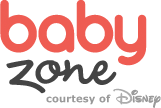Dads Weigh in on Study that Finds What They Eat Before Conception Can Affect Child's Health

"I was always heavy, so I was pretty concerned that she shouldn't inherit bad habits," the New York dad explained.
Little did Hahn, then 24, know that he probably should have started worrying about his diet and its effects on his daughter much earlier--before that is, she was conceived.
A study out of McGill University in Montreal suggests that men's food intake is just as important as women's when it comes to conceiving a healthy child. Researchers focused on folate (vitamin B9), which is found in green, leafy vegetables, cereals, fruits and meats. Pregnant women and women planning to conceive have long been advised to consume folate--the key ingredient in prenatal vitamins--to help prevent miscarriages and birth defects.
As it turns out, however, folate consumption may be just as important for men. McGill researchers studied male mice that were provided adequate folate amounts in their diets and male mice that were not. They found that the latter were 30 percent more likely to sire offspring with birth defects such as severe skeletal abnormalities.
Researchers say these results stem from the fact that sperm epigenome--the "switch" that turns genes on and off--is sensitive to diet.
Related: Is Bacon to Blame for Infertility in Men?
But just binging on folate isn't necessarily the way to ensure that you or your partner's sperm are in tip-top shape.
"Despite the fact that folic acid is now added to a variety of foods, fathers who are eating high-fat, fast food diets or who are obese may not be able to use or metabolize folate in the same way as those with adequate levels of the vitamin," lead researcher Sarah Kimmins said in a statement announcing the findings, which were published in the journal Nature Communications.
Kimmins is urging fathers "to think about what they put in their mouths, what they smoke and what they drink and remember they are caretakers of generations to come."
Dads who spoke to BabyZone said they weren't surprised by the McGill study's results, including Hahn, who is now older and wiser at age 40.
"I think the hippy, we're-all-connected vibe is going to be discovered more and more through the hard sciences," he predicted.
Tony Del Signore, who is expecting his first child this month, said he didn't need a study to convince him to keep a healthy diet before his wife got pregnant. Del Signore, 32, of Massachusetts, follows a tried-and-true adage.
"Garbage in," he said. "Garbage out."
- By Alice Gomstyn
For 11 ways men can improve their fertility, visit BabyZone!
MORE ON BABYZONE
Older dads may up baby's risk for autism
10 foods high in folic acid
Folic acid could cut autism risk by almost half

